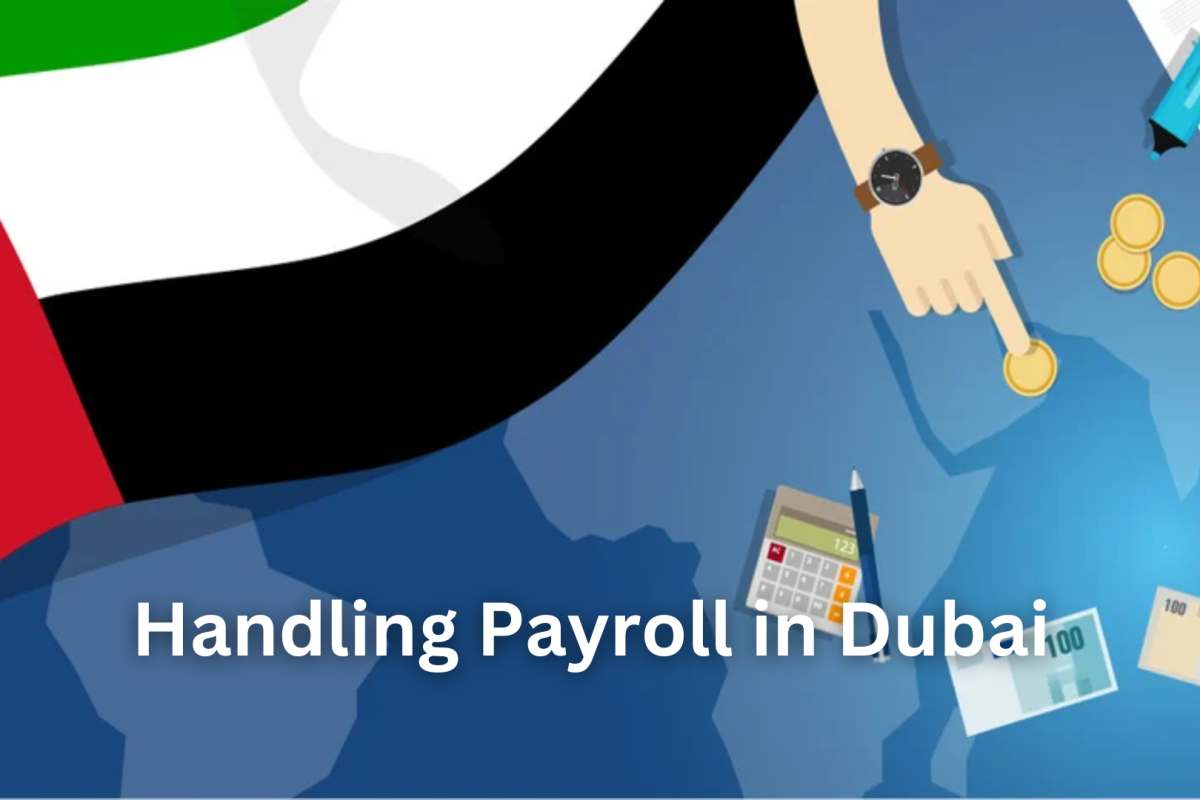Handling payroll in Dubai involves more than just salary payments. Companies must also manage gratuity, social security contributions, pensions, income taxes (where applicable), and adhere to local labor regulations like the Federal Decree-Law No. (33) of 2021. Each aspect requires precision and strict compliance with Dubai’s labor laws.
This guide offers a complete understanding of payroll management in Dubai, including salary calculations, end-of-service gratuity, pension contributions, taxes, and how an Employer of Record (EOR) in Dubai, like Globaine, can streamline payroll processes and ensure full compliance.
What Are the Key Components of Payroll in Dubai?
To successfully manage payroll in Dubai, businesses need to address the following key elements:
- Salary Calculation
- Gratuity Payments
- Social Security Contributions
- Pension Contributions (for UAE & GCC Nationals)
- Employee Benefits (Annual Leave, Sick Leave, Maternity Leave, etc.)
- Payroll Outsourcing
Each of these areas has its own set of regulations, procedures, and deadlines, all of which are critical for businesses operating in Dubai.
1. How Is Salary Calculated in Dubai?
Salary calculations in Dubai are governed by the Federal Decree-Law No. (33) of 2021. Employees must be paid monthly, with payments processed through the Wages Protection System (WPS).
Key Steps to Calculate Salary:
- Determine Gross Salary: This includes the base salary plus allowances (e.g., housing, transport, and other fixed benefits).
- Deductions: Apply deductions for social security contributions and unpaid leave.
- Net Salary Calculation: Gross Salary – Deductions = Net Salary.
💡 Pro Tip: Utilize payroll software or partner with an EOR in Dubai to automate salary calculations and ensure compliance with the WPS system.
2. What Are Gratuity Payments and How Are They Calculated in Dubai?
Under Federal Decree-Law No. (33) of 2021, gratuity is a statutory entitlement for employees who have completed at least one year of service. The gratuity amount depends on the employee’s length of service and the type of contract (limited or unlimited).
Gratuity Calculation Formula:
- First 5 Years: 21 days of basic pay for each year of service.
- After 5 Years: 30 days of basic pay for each additional year of service.
Example Calculation:
If an employee’s basic monthly salary is AED 10,000 and they have worked for 6 years:
- First 5 years: (10,000 / 30) x 21 = AED 7,000 per year x 5 = AED 35,000
- Sixth year: (10,000 / 30) x 30 = AED 10,000
Total Gratuity = AED 35,000 + AED 10,000 = AED 45,000
💡 Pro Tip: Automate gratuity calculations using payroll software to track service periods and ensure accurate end-of-service benefits (EOSB).
3. What Are the Pension Contribution Requirements for UAE & GCC Nationals in Dubai?
Pension contributions are mandatory for UAE and GCC nationals under both the UAE Federal Decree-Law No. (33) of 2021 and Federal Law No. (7) of 1999 for pension and social security.
Contribution Breakdown (For UAE Nationals):
- Employee Contribution: 5% of gross salary
- Employer Contribution: 12.5% of gross salary (15% in Abu Dhabi)
- Government Contribution: 2.5% of gross salary
💡 Pro Tip: Ensure timely pension filings and contributions through the GPSSA system to maintain compliance and avoid penalties.
4. What Employee Benefits Must Be Provided Under Dubai’s Labor Law?
As per Federal Decree-Law No. (33) of 2021, employers in Dubai must offer the following benefits to their employees:
- Annual Leave: 30 calendar days after one year of service.
- Sick Leave: 90 days per year (first 15 days full pay, next 30 days half pay, final 45 days unpaid).
- Maternity Leave: 45 days full pay + 15 days half pay.
- Paternity Leave: 5 working days within 6 months of the child’s birth.
- Public Holidays: Paid leave on public holidays as declared by the Dubai government.
💡 Pro Tip: Automate leave management with an EOR in Dubai to ensure full compliance with labor laws.
5. Should You Outsource Payroll in Dubai?
Outsourcing payroll in Dubai can be particularly beneficial for international businesses unfamiliar with local labor laws.
Benefits of Outsourcing Payroll to an EOR in Dubai:
- Compliance: Ensure adherence to WPS, gratuity, pensions, and labor laws.
- Accuracy: Minimize the risk of payroll errors.
- Time-Saving: Free up your HR team to focus on other priorities.
- Data Security: Maintain confidentiality of payroll information.
💡 Pro Tip: Partner with Globaine EOR in Dubai to streamline payroll operations, ensure timely salary payments, and maintain full legal compliance.
How Globaine EOR in Dubai Can Help
Globaine EOR in Dubai offers comprehensive Employer of Record (EOR) services, ensuring smooth payroll management, full compliance, and operational efficiency.
Here’s how Globaine helps:
- Payroll Compliance: Ensure full compliance with gratuity, social security, and pension contributions.
- Payroll Calculation: Handle all gross-to-net calculations, gratuity, and deductions.
- Timely Payments: Ensure employees are paid on time, every time.
- Pension Contributions: Manage pension filings and payments for UAE nationals.
- Cost Transparency: Enjoy clear, predictable costs with no hidden fees.
💡 Get Expert Help: Contact Globaine EOR in Dubai for seamless payroll management that ensures compliance with Dubai’s labor laws.
Frequently Asked Questions (FAQs)
How often do companies need to pay employees in Dubai?
Employees must be paid at least once a month as per the Dubai Wage Protection System (WPS).
How is end-of-service gratuity calculated in Dubai?
End-of-service gratuity is calculated based on 21 days of basic pay for each of the first five years, and 30 days for each year thereafter.
Are expatriate employees subject to Dubai social security?
No, social security contributions apply only to Dubai and GCC nationals.
Can employers deduct any amount from an employee’s salary in Dubai?
Employers can deduct up to 10% for advances and loans, and fines up to 5 days’ wages per month for disciplinary issues.

